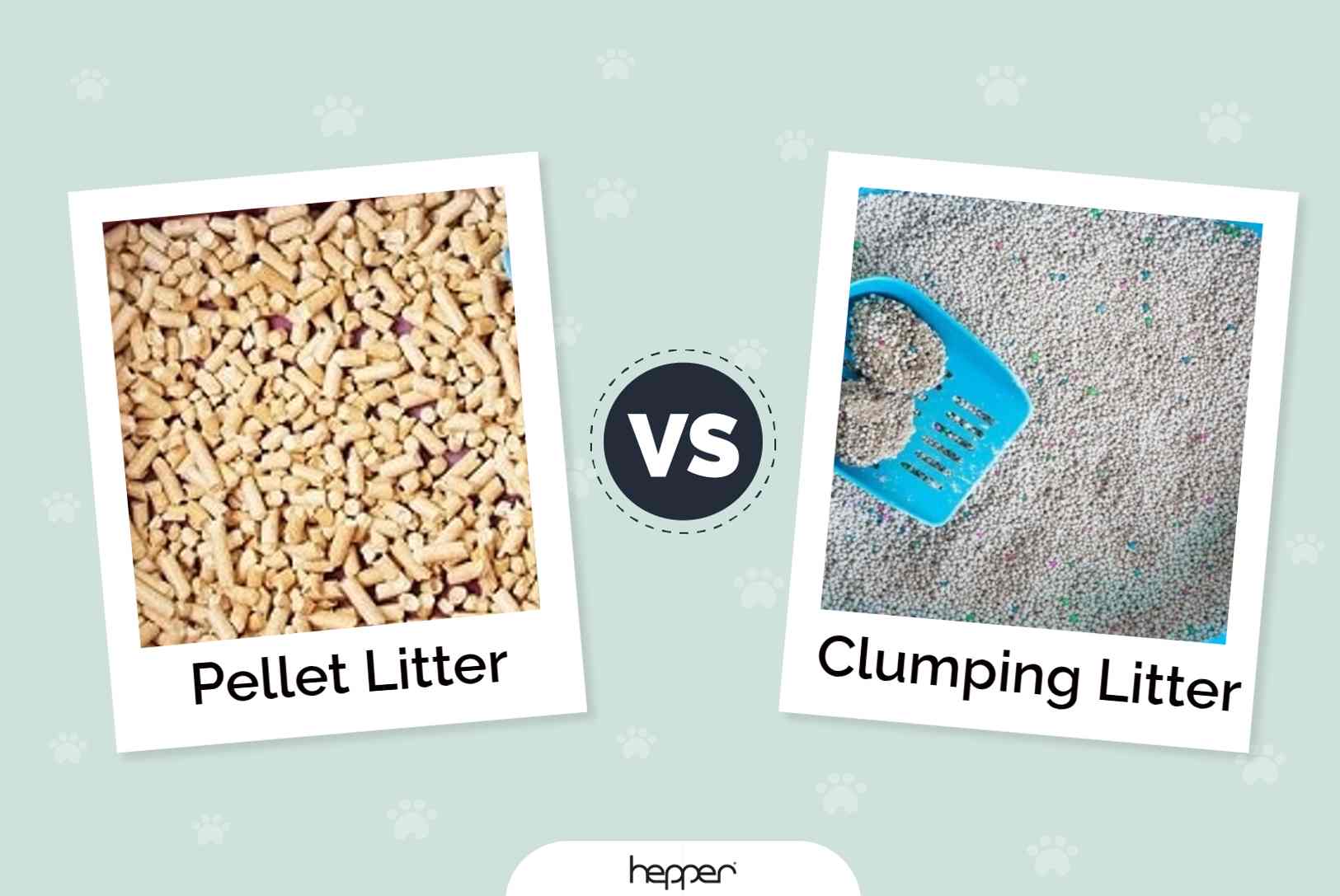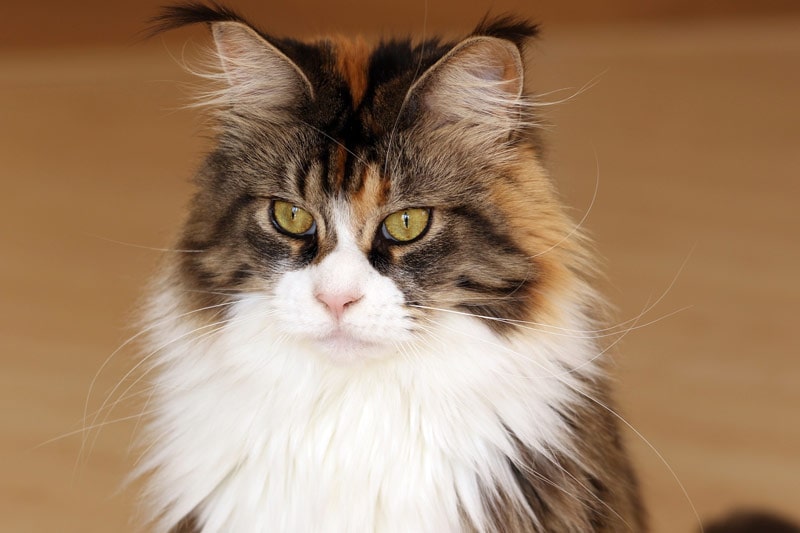Can A Cat Eat Raw Beef? Vet-Reviewed Benefits, Risks & FAQ

Updated on

Click to Skip Ahead
Being obligate carnivores, cats rely on an animal-based protein diet as a primary energy source. That includes meats such as beef, fish, and chicken. A global shift in pet feeding practices has seen cat owners develop interest in feeding raw foods.
But can a cat eat raw beef?
The short answer is technically yes, but not as a sole diet. And it should only be done in consultation with your own vet, and human doctor, as it carries risks for both you, and your cat. Raw foods can contain life-threatening pathogens for both humans and cats, so it is not a decision to be made lightly.
Benefits of Feeding Your Cat Raw Beef
There is an ongoing debate on whether it is advisable to feed cats raw meat. Despite the health concerns, cat owners worldwide are interested in more information about feeding raw food diets to their furry friends.
Many who have switched claim BARF diets are healthier than conventional cat food options. Although no empirical evidence supports such claims, raw protein-based diets, like beef, may have some potential benefits for select cats.
We look at some of the advantages of feeding your cat raw beef below.
1. Resembles a Cat’s Ancestral Diet
Proponents of BARF diets believe raw beef is healthier than conventional options since it resembles a feline’s ancestral diet. There is no scientific option to back this claim, though. Further, beef is not a natural protein source for felines.
Nevertheless, wild cats solely depend on raw food for survival. So, assuming that domestic cats can benefit from the same is not strange.
2. High Water Content
One significant way the raw beef diet resembles a cat’s natural diet is its high moisture content. Cats in the wild obtain most of their water from prey meat, which usually consists of 70% water. Contrastingly, dry cat food consists of 10% water.
Cats rarely compensate for the low moisture content in their food by drinking more water. That can lead to concentrated urine, which can form crystals and urinary stones that block the urethra and make urination difficult.
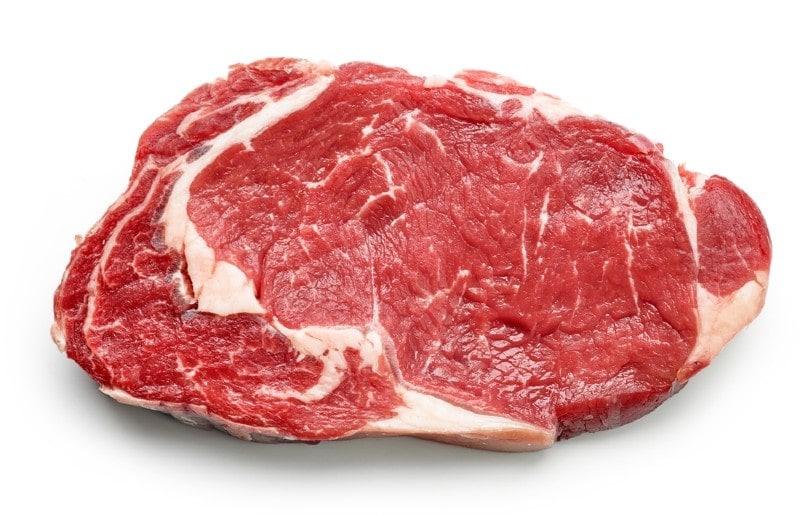
3. Heated Food Has Toxins
Heating food results in toxins such as acrylamides and nitrosamines that influence physiological functions such as reproduction, muscle function, and hormonal regulation. They also have carcinogenic, neurotoxic, and genotoxic properties.
However, the effects of these compounds on pets’ health and function have not been sufficiently studied.
4. It Can Be Healthier
It is imperative to note that no scientific evidence points to raw food being healthier than conventional options. However, those who feed their felines raw food have reported improvements in their kitties’ health. Some recorded benefits include increased enthusiasm, healthier coats, better breath, and healthy body weight.
Compared to cooked and commercially processed diets, raw meat is more biochemically complex, with a higher level of antioxidants such as flavonoids and vitamins C and E. These could be responsible for the observed health improvement.
The low carbohydrate content in raw beef could be why cats are less prone to weight-related issues. Raw meat also makes felines stay full for longer. So, a cat will be less hungry and less likely to beg for more food.
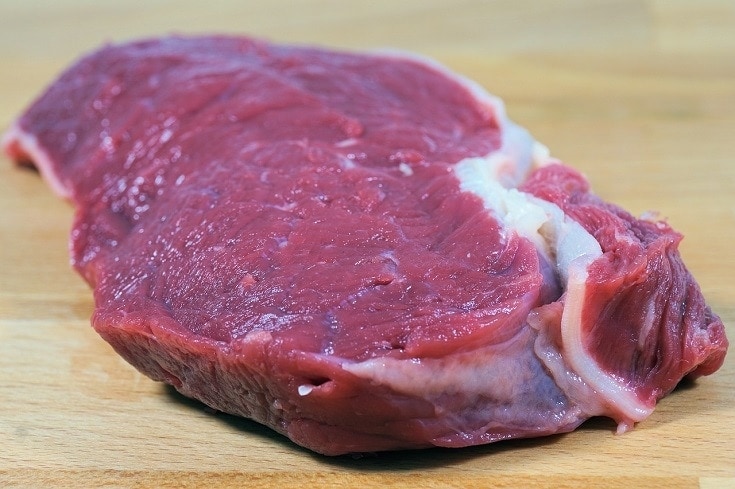
5. Less Smelly Feces
A cat’s digestive system is not designed to process plant-based proteins. Hence, it won’t digest or absorb them fully. The remains end up in the cat’s poop, making it smelly.
On the other hand, the system will digest raw beef more efficiently. More is absorbed and less excreted as feces. As a result, the poop, in this instance, is small, dry, and less smelly.
6. Better for Cats With Allergies
A raw beef diet can benefit some cats with allergies and other food sensitivities. The absence of additional ingredients and additives makes the diet safe for cats likely to develop adverse reactions to certain foods. Most conventional cat foods contain various ingredients, some of which cats can be allergic to. However, equally important is that many cats are actually allergic to beef, raw or cooked!
Food allergies in cats can cause gastrointestinal upsets leading to vomiting and diarrhea. But most usually affect the skin causing signss such as overgrooming, scratching, itching, biting, and secondary infections and sores.
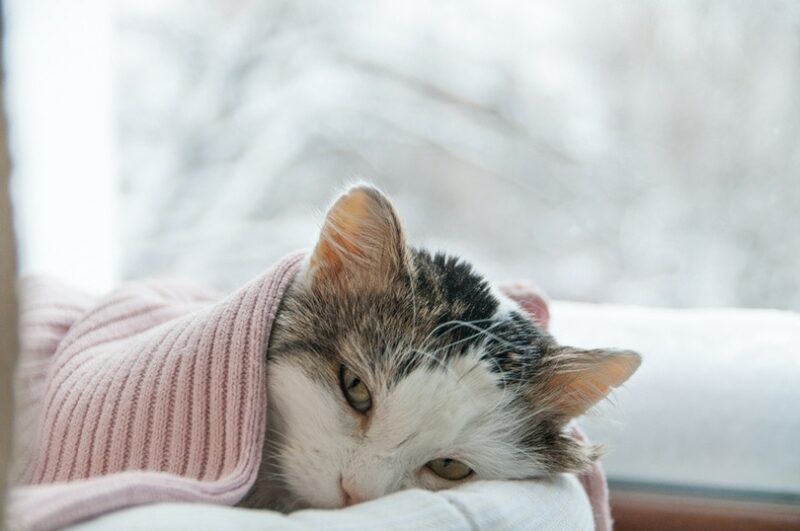
Why You Should Not Feed Your Cat Raw Beef
According to the FDA, giving your cat uncooked beef can be dangerous. We look at some of the cons of feeding your cat raw meats below.
Harmful Pathogens
Raw beef could contain harmful pathogens that could risk your furry friend’s health. Potential pathogens include salmonella, E Coli, and campylobacter.
Importantly, reports of cats becoming sick or dying after consuming contaminated raw food exist. Additionally, cat owners also risk being infected by handling contaminated meat. Kids, seniors, and people with immunocompromised systems are at a high risk.
Nutritional Deficiencies
Commercially processed raw beef usually has a proper balance of nutrients necessary for the growth and health of your cat. Those that meet the standards have an Association of American Feed Control Officials (AFFCO) label.
However, homemade raw beef does not constitute a balanced diet. It lacks essential nutrients such as taurine, arachidonic acid, and vitamins A, B, and D.
Consulting the veterinarian before preparing raw beef for your cat is essential. It will ensure you give your furry friend all the necessary nutrients to remain healthy and strong.
Injuries From Bones
Raw beef with bone should not be fed to your cat. Otherwise, they can cause injuries to your cat. For instance, they can fracture the teeth and cause intestinal blockages. They can also cause lacerations.
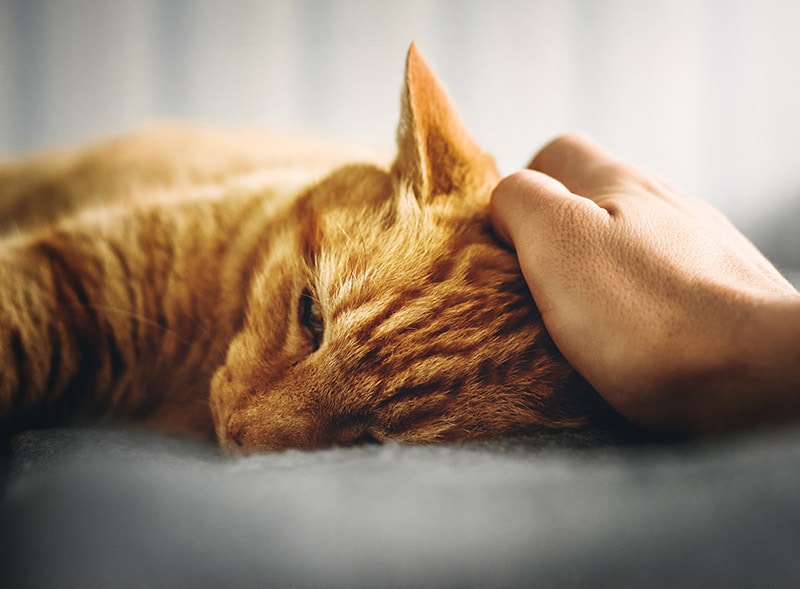
Can Kittens Eat Raw Beef?
No. It is not advisable to feed your kitten raw beef.
Its immune system is weak and thus more susceptible to bacterial infections caused by eating contaminated raw food. A kitten can easily die from Salmonellosis and listeriosis.
Your kitten should only feed on its mother’s milk when less than two weeks old. If the mother is absent, a kitten milk replacer formula can help. However, avoid feeding the kitten cow milk since its system can’t digest it.
Your kitten is ready to eat solid food after three weeks. Here, it would help if you considered well-balanced and nutritious food rich in proteins with moderate levels of fat and low carbohydrates.
Should Cats Eat Raw Beef Exclusively?
No. You shouldn’t feed your cat raw beef exclusively. Although cats are obligate carnivores, they require other nutrients besides proteins to remain healthy and strong. These include taurine, vitamins, and other essential minerals, sourced from other ingredients. Generally, if after speaking with your vet you decide feeding raw beef is an option, it should be balanced with a commercial diet made for cats.
Conclusion
So, can a cat eat raw beef? Yes. You can feed your cat raw beef or any other uncooked meat if you adhere to the above safety measures. Keep the food chilled or refrigerated, and take care not to contaminate it.
Commercially prepared raw beef is safer than home-prepared options should you choose the raw food route. It is more likely to be complete and balanced, and the freeze-drying process kills some harmful pathogens.
It is better to consult your vet if you intend to feed your cat home-prepared raw beef. A veterinarian will determine your cat’s nutritional needs based on age, size, and breed to help you prepare nutritionally balanced recipes.
See also:
Featured Image Credit: PDPhotos, Pixabay



